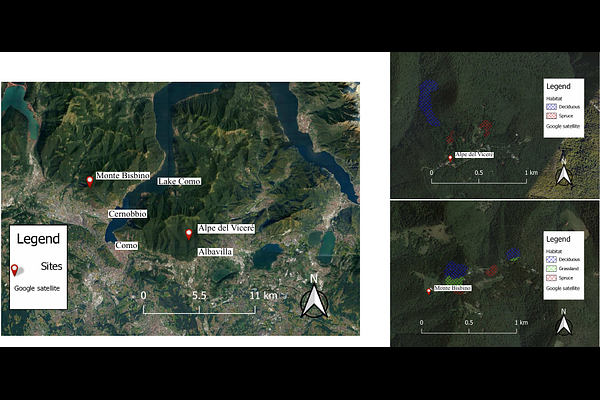Long-term impacts of tree monoculture plantations on biodiversity are mediated by soil acidification

Long-term impacts of tree monoculture plantations on biodiversity are mediated by soil acidification
Balestra, S.; Manuzi, V.; Ceresa, E.; Gatti, P.; Pirttilahti, R.; Adatte, T.; Grand, S.; Losapio, G.
AbstractReforestation efforts have sought to counteract deforestation and to provide a nature-based solution against climate change. However, they often involve monoculture plantations of non-native species, which may have unintended ecological consequences. Yet, the long-term impacts of planting trees have been poorly monitored. Leveraging historical reforestation conducted in northern Italy during the 1920s by the fascist regime, we monitor the long-term impacts of red spruce (Picea abies) monoculture plantations on biodiversity of plants and soil fauna. We found that plant diversity in tree plantations was 50.3% lower than in native forests and 74.5% lower than in grasslands. Additionally, functional evenness was reduced by 30% in spruce plantations, suggesting lower ecological stability. In tree plantations, soil pH was significantly more acid and organic carbon content was 25% higher due to litter deposition and slower decomposition rates. Soil fauna diversity was marginally less affected, suggesting a faster recover over the last one-hundred years of arthropods as compared to plants. These findings highlight the need for monitoring reforestation interventions, suggesting strategies that incorporate diverse tree species rather than planting tree monocultures to support functionally and resilient ecosystems.